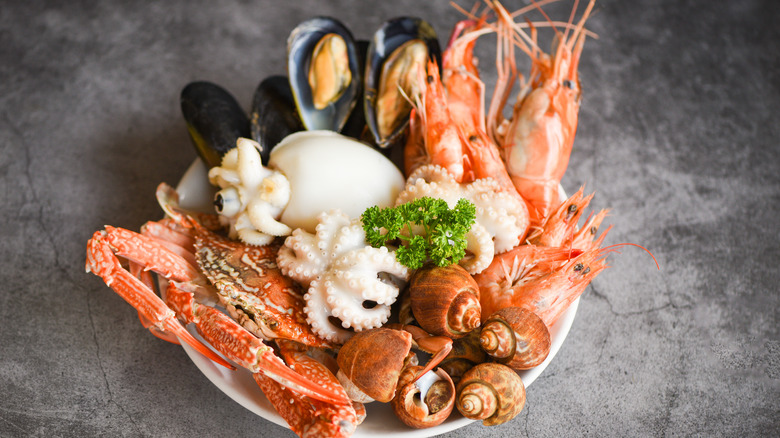
Our bodies are constantly communicating with us – it’s a matter of learning to listen. Intuitive eating, as explained by Healthline, is an eating philosophy focused on listening to your body’s food desires without judgment, aiming to refine that skill.
Food cravings, described as an intense desire for a particular food, impact nearly 90% of people, according to Medical News Today. While cravings often have a pathological basis or occur due to hormonal shifts, sometimes they may signal a nutrient deficiency in your body, as noted by Harvard T.H. Chan.
Shellfish are aquatic invertebrates categorized into two groups: Crustaceans, such as shrimp, prawns, crabs, and lobsters, and mollusks, including scallops, clams, oysters, mussels, snails, octopus, and squid, as outlined by Food Allergy Research & Education. If you’re suddenly craving char-grilled shrimp or boiled lobster, your body might be trying to communicate something. Let’s delve deeper.
What shellfish cravings might be telling you

Beyond being delicious and a pleasant change from chicken and beef, shellfish offer a rich source of lean protein, healthy fats, and essential minerals. They are nutritional powerhouses that support weight loss, boost the immune system, and promote brain and heart health, as highlighted by Healthline.
While Simply Called Food indicates that craving shellfish for its sweet taste and luscious texture is valid, it may also suggest nutritional deficiencies. Craving shellfish often signals your body’s need for nutrients abundantly found in them, such as protein, iodine, or omega-3 fatty acids. For instance, during illness or severe period symptoms, your body might crave the omega-3s or iron in shellfish to alleviate inflammation and restore energy. Stylecaster further notes that craving shellfish, eggs, or meat may indicate a need for B12 – a vitamin these foods are rich in.




